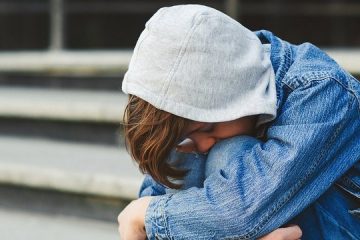This latest study shows that children who have suffered a concussion are at a higher risk of developing mental health problems. Concussions in children can occur as a result of injuries and falls, such as on a playground.
The study found that children and adolescents with a history of concussion were up to 39% more likely to develop mental health disorders, including anxiety, depression, and behavioral disorders, compared to peers who had not suffered any injuries. They were also at a higher risk of self-harm.
Experts emphasized that most children fully recover from concussions, and the latest findings are not a cause for concern.

Brain injuries in children and their mental disorders
“The connection between brain injury and mental health is visible in some children – not all,” said lead author Andree-Anne Ledoux from the hospital in Ottawa, Canada. She also added that it is important for parents to realize that after a brain injury, mental problems may arise. Always consult a doctor about concerning symptoms. The study emphasizes the importance of taking brain injuries seriously and paying attention to children’s mental health. Children who have had a brain injury may struggle with mental health problems such as depression and anxiety disorders.
Talin Babikian, a clinical neuropsychologist at the University of California, Los Angeles, noted that some children experience symptoms of post-traumatic stress disorder, such as after suffering a brain injury in a car accident. It is important for parents and caregivers to receive accurate information from doctors about recovering from a brain injury.
The published study draws on health records of nearly 449,000 children and adolescents from Ontario aged 5 to 18. More than 152,000 of them suffered a brain injury, while the rest were treated for orthopedic injuries. None of the children had had a mental illness or brain injury in the past five years.
Researchers closely monitored the rates of diagnosis of mental health, self-harm, psychiatric hospitalization, and suicide in both groups – from one month to 10 years after physical trauma.
Andree-Anne Ledoux noted that distinguishing between symptoms after a concussion and emerging psychiatric conditions can be complicated. Regardless of whether your child has had a concussion or not, there are several key aspects to supporting their mental health. One of them is a sense of safety, and the other is a sense of belonging and involvement in socializing with peers.
What is a concussion?
A concussion in children is a short-term disruption of brain function caused by a mechanical head injury. It is clear that not every injury needs to be associated with a concussion. Among the most common symptoms that should not be underestimated are:
-headaches and dizziness
-loss of consciousness
-nausea and vomiting
-lethargy
-balance problems
-worsening of memory.
It is extremely important to help children safely return to normal activities after a concussion. Given the importance of physical activity and social engagement, children should not be kept away from sports just to prevent potential injuries and complications.
